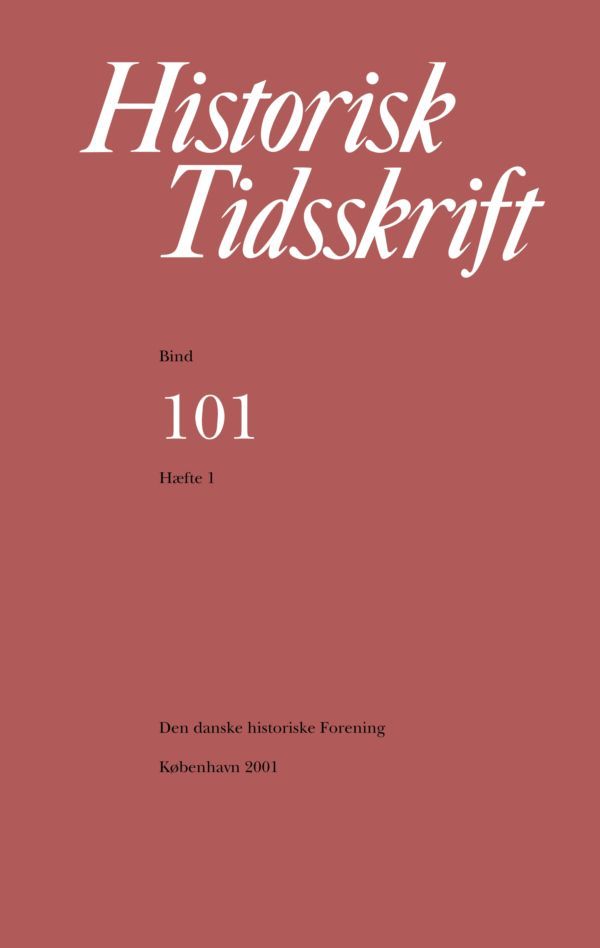Hjemstavnen og verdenssystemet. Gilberto Freyres kulturhistoriske Brasilienstolkning
Resumé
Native Soil and World System: Gilberto Freyre's culturalist interpretation of BrazilGilberto Freyre (1900-1987) was the renowned "Father of Brazilian Sociology". In the classic The Masters and the Slaves (1933) he successfully established the sugar plantation of the coastal zone of the old North-East as a central icon of Brazilian history and society. According to the present article Freyre's work can furthermore be used to show some important general implications of the culturalist research strategy that nowadays is so common in history, ethnology and sociology.Gilberto Freyre viewed Brazil as a successful hybrid of three different cultures: the Portuguese, the Amerindian and the African. Freyre was aware of the antagonisms that the institutions of colonialism and slavery implied. Nevertheless he emphasized the positive outcome of the encounter: Each group had given an indispensable contribution to the building of the new nation and its adaptation to the natural environment.An ambivalence was present in Freyre's reading of the facts. On the one hand, he built upon the still rather new and progressive notion that different ethnic or cultural features do not indicate positions of neither superiority nor the opposite. Specifically, he argued strongly against traditional prejudice against the African elements of the population and culture of Brazil. On the other hand, he was by no means egalitarian in his views, but favoured local and regional values rather than universal ones. His attitude was one of equal worth and dignity, not of equal rights and opportunities for the individual.Besides the introduction to Freyre the article briefly presents the essentials of a few other interpretations of Brazil (and even post-colonial societies in general). Compared to Freyre the approach guided by mainstream economic theory shifts the attention from culture and identity to a more materialistic and empirically specific apprehension of living conditions, stratification and economic and technological processes. Here, a value system based on the preservation of cultural identity tends to be rejected in favour of economic development as the essential prerequisite of a good, sustainable society. A third general approach, World System-analysis, in its turn differs from the mainstream by being strongly sceptical and pessimistic towards the idea of developing Third World societies on the basis of universal ideas that are, in effect, of Western origin. In this respect World System theory somewhat resembles culturally based traditionalism, but differs from the latter by denying that local cultures are autonomous; they are, on the contrary, subject to the structural determinism of a global system.The article concludes in pointing out some consequences of the fact that there are similarities as well as differences between all three main styles of representation that have been reviewed. Specifically in relation to culturalism it is argued that while it may be both legitimate and relevant to point out the importance of ethnicity, gender, local or regional variety etc., this does not, neither on a cognitive nor on a politico-ideological level, imply the nullification of other themes and methods. Culturalism is not a new paradigm of unequivocal content and with a potential to displace all other, it is merely, as indicated by the example of Gilberto Freyre, one among several ways of thinking.Downloads
Publiceret
Citation/Eksport
Nummer
Sektion
Licens
Ophavsret til bidrag i Historisk Tidsskrift tilhører forfatterne og Den danske historiske Forening som udgiver af Historisk Tidsskrift. For illustrationer gælder den ophavsret, som står anført i billedteksten. Ophavsretslovens almindelige bestemmelser gælder, hvilket vil sige, at ophavsretten gælder i 70 år efter forfatterens død. Bidrag i Historisk Tidsskrift må derfor, med forbehold for en ”moving wall” på tre år, frit downloades, læses, gemmes, anvendes og citeres (med kildeangivelse) i privat og videnskabelig sammenhæng, men de må ikke helt eller delvis genudgives af tredjepart, heller ikke i redigeret form, uden tilladelse fra forfatterne og Den danske historiske Forening. Henvendelse skal i så fald rettes til Historisk Tidsskrifts redaktion på histtid@hum.ku.dk.





